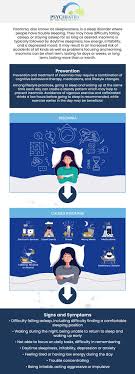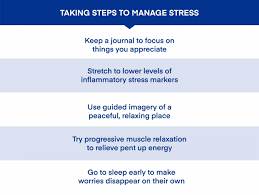Insomnia Help: Strategies for Better Sleep
Insomnia is a common sleep disorder that affects millions of people worldwide. It can manifest as difficulty falling asleep, staying asleep, or waking up too early and not being able to fall back asleep. Chronic insomnia can have a significant impact on overall health and well-being, leading to fatigue, irritability, and decreased cognitive function.
Causes of Insomnia
There are many factors that can contribute to insomnia, including stress, anxiety, depression, poor sleep habits, certain medications, medical conditions, and environmental factors. Identifying the root cause of your insomnia is crucial in finding the most effective treatment.
Strategies for Better Sleep
Fortunately, there are several strategies that can help improve sleep quality and alleviate insomnia symptoms:
- Establish a bedtime routine: Create a relaxing bedtime routine to signal to your body that it’s time to wind down. This could include activities such as reading a book, taking a warm bath, or practicing relaxation techniques.
- Avoid stimulants: Limit your intake of caffeine and nicotine close to bedtime as they can interfere with your ability to fall asleep.
- Create a sleep-conducive environment: Make sure your bedroom is dark, quiet, and at a comfortable temperature for optimal sleep conditions.
- Avoid screens before bed: The blue light emitted by electronic devices can disrupt the production of melatonin, a hormone that regulates sleep-wake cycles. Try to avoid screens at least an hour before bedtime.
- Mindfulness and relaxation techniques: Practices such as meditation, deep breathing exercises, or progressive muscle relaxation can help calm the mind and body before sleep.
- Cognitive-behavioral therapy for insomnia (CBT-I): CBT-I is a structured program that helps identify and replace negative thoughts and behaviors that contribute to insomnia. It has been shown to be highly effective in treating chronic insomnia.
Seeking Professional Help
If you continue to struggle with insomnia despite trying these strategies, it may be beneficial to seek help from a healthcare provider or sleep specialist. They can provide further evaluation and recommend appropriate treatment options tailored to your specific needs.
Remember that improving your sleep habits takes time and patience. By implementing these strategies consistently and seeking support when needed, you can take positive steps towards better sleep and overall well-being.
7 Effective Tips to Overcome Insomnia and Improve Sleep Quality
- Establish a bedtime routine and stick to it.
- Create a comfortable sleep environment.
- Limit exposure to screens before bedtime.
- Avoid caffeine and heavy meals close to bedtime.
- Incorporate relaxation techniques like deep breathing or meditation.
- Exercise regularly but not right before bed.
- Consider seeking professional help if insomnia persists.
Establish a bedtime routine and stick to it.
Establishing a consistent bedtime routine is a key strategy in managing insomnia. By creating a calming pre-sleep ritual and sticking to it each night, you signal to your body that it’s time to unwind and prepare for rest. This routine can include activities like reading a book, taking a warm bath, or practicing relaxation techniques, helping you transition smoothly from wakefulness to sleep. Consistency is crucial in reinforcing your body’s internal clock and promoting healthy sleep patterns, ultimately improving the quality of your rest and overall well-being.
Create a comfortable sleep environment.
Creating a comfortable sleep environment is essential for improving your quality of sleep and managing insomnia. Ensure that your bedroom is conducive to rest by maintaining a cool temperature, minimizing noise and light disturbances, and investing in a comfortable mattress and pillows. By optimizing your sleep environment, you can signal to your body that it’s time to unwind and promote better relaxation, making it easier to fall asleep and stay asleep throughout the night.
Limit exposure to screens before bedtime.
Limiting exposure to screens before bedtime is a crucial tip for improving sleep quality and combating insomnia. The blue light emitted by electronic devices can disrupt the production of melatonin, the hormone responsible for regulating our sleep-wake cycles. By avoiding screens at least an hour before bedtime, we allow our bodies to naturally wind down and prepare for restful sleep. This simple adjustment can have a significant impact on our ability to fall asleep easily and experience more restorative sleep throughout the night.
Avoid caffeine and heavy meals close to bedtime.
Avoiding caffeine and heavy meals close to bedtime is crucial for improving sleep quality and managing insomnia. Caffeine is a stimulant that can disrupt the natural sleep-wake cycle, making it harder to fall asleep and stay asleep. Similarly, consuming heavy meals before bedtime can lead to indigestion and discomfort, making it difficult to relax and drift off to sleep. By being mindful of your caffeine intake and meal timing in the evening, you can create a more conducive environment for restful sleep and better manage insomnia symptoms.
Incorporate relaxation techniques like deep breathing or meditation.
Incorporating relaxation techniques such as deep breathing or meditation can be highly beneficial in managing insomnia. These practices help calm the mind and body, reducing stress and anxiety that may contribute to difficulty falling asleep. By engaging in deep breathing exercises or meditation before bedtime, individuals can create a peaceful and conducive environment for sleep, promoting relaxation and improving sleep quality. Consistent practice of these techniques can help establish a bedtime routine that signals the body it’s time to unwind and prepare for restful sleep.
Exercise regularly but not right before bed.
It is recommended to exercise regularly as part of a healthy lifestyle, but it’s important to time your workouts strategically, especially when dealing with insomnia. Engaging in physical activity earlier in the day can promote better sleep quality by helping regulate your circadian rhythm and reducing stress levels. However, exercising right before bed can have the opposite effect, as it may increase alertness and make it harder to fall asleep. Therefore, incorporating regular exercise into your daily routine while avoiding vigorous workouts close to bedtime can be a beneficial strategy in managing insomnia and improving overall sleep patterns.
Consider seeking professional help if insomnia persists.
Consider seeking professional help if insomnia persists. Chronic insomnia can have a significant impact on your quality of life and overall health. A healthcare provider or sleep specialist can conduct a thorough evaluation to identify underlying causes and recommend personalized treatment options. Professional guidance can help you effectively manage your insomnia symptoms and improve your sleep quality, leading to better physical and mental well-being in the long run.




